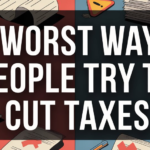Is finance a good career path in 2025? Many students and professionals ask this question while planning their careers.
With high salaries, diverse roles, and global demand, finance seems attractive—but it also comes with challenges like long hours and intense competition.
In this blog, we’ll explore the advantages, drawbacks, salary potential, education return on investment, and more to help you make an informed decision.
Pros of a Career in Finance
- High Earning Potential
- Finance offers some of the highest starting salaries in the job market.
- Bonuses, profit sharing, and stock options increase total compensation.
- Diverse Career Options
- Roles in investment banking, corporate finance, insurance, fintech, and risk management.
- Opportunity to switch specializations and industries.
- Career Progression
- Clear career ladder: Analyst → Associate → Manager → Director → CFO/Partner.
- Performance-based promotions and leadership opportunities.
- Global Mobility
- Finance professionals are needed worldwide, especially in hubs like NYC, London, Singapore, and Dubai.
- Job Stability in Core Sectors
- Finance remains stable in industries like healthcare, government, and utilities.
Cons of a Career in Finance
- Work-Life Balance Can Suffer
- Long hours, especially in investment banking and private equity.
- High Stress Levels
- Market volatility, reporting deadlines, and pressure to perform.
- Competitive Job Market
- Entry is tough in top firms without the right credentials or experience.
- Continuous Learning Required
- Certifications like CFA, CPA, or FRM take years and require constant study.
- Ethical Responsibilities
- Must follow strict regulations and avoid conflicts of interest.
Pros vs. Cons of a Finance Career
Skills Needed for a Successful Finance Career
To thrive in finance, you need both technical expertise and soft skills. Here are the most important ones:
- Analytical Thinking: Ability to interpret data, trends, and reports quickly and accurately.
- Excel and Financial Modeling: Strong spreadsheet skills are essential for budgeting, forecasting, and valuation.
- Communication: Finance professionals must explain complex concepts clearly to stakeholders and clients.
- Attention to Detail: Mistakes in financial statements can be costly; precision is crucial.
- Problem Solving: You’ll often face unexpected challenges that require creative solutions.
- Time Management: Deadlines are tight, especially during financial reporting cycles.
- Team Collaboration: Many finance projects involve working with departments like marketing, HR, and IT.
- Knowledge of Financial Software: Tools like Bloomberg, QuickBooks, and SAP are industry standards.
Is Finance a Good Career Path for the Long Term?
Yes, finance can be a great long-term career if you enjoy working with numbers, strategic thinking, and financial planning. The sector is evolving fast with digital transformation and offers plenty of opportunities in fintech, data analytics, and sustainable finance.
Finance Career Salary Potential (2025 Averages)
| Job Title | Avg. Annual Salary | Job Outlook (10 Years) |
| Financial Analyst | $80,000 | +9% growth |
| Investment Banker | $150,000 | +7% growth |
| Risk Manager | $110,000 | +17% growth |
| Actuary | $130,000 | +20% growth |
| Chief Financial Officer (CFO) | $200,000+ | Stable demand |
Lifetime Earnings in Finance Careers
| Job Title | Average Annual Salary | 30-Year Career Earnings |
| Financial Analyst | $80,000 | $2.4 million |
| Investment Banker | $150,000 | $4.5 million |
| Risk Manager | $110,000 | $3.3 million |
| Actuary | $130,000 | $3.9 million |
| CFO | $200,000 | $6.0 million |
Note: These figures exclude bonuses, equity, and promotions.
Education ROI – Is It Worth Studying Finance?
| Education Path | Estimated Cost | Avg. Starting Salary | Payback Period |
| Bachelor’s in Finance | $60,000 | $60,000 | ~1 year |
| CFA Certification | $5,000 | $95,000 | ~2–3 months |
| MBA in Finance | $100,000 | $90,000 | ~1.2 years |
Frequently Asked Questions (FAQs)
Q1. Is finance a stressful career?
Yes, especially in high-stakes roles like investment banking. However, jobs like accounting or financial planning are more balanced.
Q2. Do finance jobs pay well?
Yes. Many mid-level finance roles pay over $100,000 annually.
Q3. Is finance still in demand in 2025?
Absolutely. Risk analysis, fintech, and ESG finance roles are growing quickly.
Q4. Can introverts succeed in finance?
Yes. Roles like actuary, tax analyst, and data modeling are suitable for introverts.
Q5. Is finance only for math experts?
No. While math helps, skills in communication, analysis, and strategy are just as important.
Conclusion
Finance is a rewarding and versatile career path. It offers excellent pay, global opportunities, and room for professional growth. But it also requires resilience, commitment, and continuous learning. If you’re prepared for a fast-paced and impactful career, finance may be the perfect fit.
Now that you know the full picture — the pros, cons, earnings, and ROI — you’re better equipped to decide whether finance is the right career for you.










